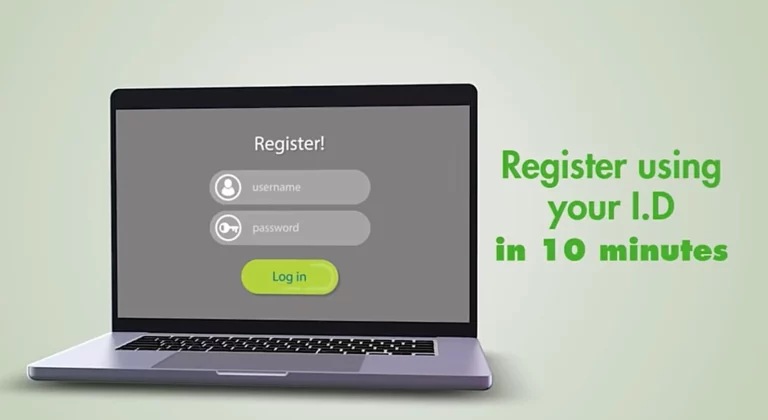If you’re thinking of starting a small lending business in the Philippines, there are several important small lending business tips in the Philippines that you should keep in mind. The lending industry in the country is growing, and there is a demand for small loans from individuals and small businesses. With the right approach and compliance with legal requirements, you can successfully establish a lending business and cater to this demand. In this blog post, we will discuss the key considerations and provide you with valuable small lending business tips in the Philippines to help you get started.
Understanding the Lending Landscape in the Philippines
The lending business in the Philippines is regulated by the Lending Company Regulation Act of 2007, also known as the “Truth in Lending Act.” This act provides the legal framework for the operation of lending companies and protects the rights of both lenders and borrowers. The Securities and Exchange Commission (SEC) is the primary regulatory body responsible for overseeing lending companies and ensuring compliance with the law.
When starting a lending business in the Philippines, it is crucial to understand the different types of lending companies and the specific regulations that apply to each. There are two main categories: financing companies and lending investors. Financing companies are typically larger institutions that provide loans to individuals and businesses, while lending investors are often smaller operations that offer loans using their own capital.
Legal Requirements for Starting a Lending Business
To start a lending business in the Philippines, there are several legal requirements that you must fulfill. These include:
- Registration with the SEC: You need to register your company with the SEC and submit the necessary documents, including articles of incorporation, bylaws, and financial statements.
- Compliance with Capital Requirements: Lending companies in the Philippines are required to have a minimum paid-up capital of at least PHP 1 million. This capital serves as a cushion to protect both the lender and the borrower in case of financial difficulties.
- Obtaining a Certificate of Authority to Operate: After registering with the SEC, you will need to obtain a Certificate of Authority to Operate from the same body. This certificate authorizes your company to legally engage in lending activities in the country.
- Complying with the Truth in Lending Act: The Truth in Lending Act sets out specific disclosure requirements for lending companies, including the terms and conditions of loans, interest rates, and other charges. It is important to ensure that your business complies with these requirements to avoid legal issues.
- Other Regulatory Bodies: Depending on the scale and nature of your lending business, you may also need to register with other regulatory bodies, such as the Bangko Sentral ng Pilipinas (BSP) and the Bureau of Internal Revenue (BIR).
Creating a Business Plan
Before starting your lending business, it is crucial to develop a comprehensive business plan. This document will outline your business goals, target market, financial projections, and marketing strategies. Here are some key considerations for your business plan:
- Market Research: Conduct thorough market research to understand the demand for lending services in your target area. Identify your potential customers and competitors to tailor your offerings accordingly.
- Target Market: Define your target market clearly. Are you focusing on individuals, small businesses, or a specific niche? Understanding your target market will help you create tailored loan products and marketing strategies.
- Financial Projections: Prepare detailed financial projections, including estimated loan volumes, interest rates, and operating expenses. This will help you secure funding and attract potential investors.
- Marketing Strategies: Develop a marketing plan to reach your target audience effectively. Consider both online and offline channels, such as social media, local community events, and partnerships with other businesses.
Choosing the Right Location
The location of your lending business is an important factor to consider. Choose an area that is easily accessible to your target customers and has a high demand for lending services. Here are some tips for selecting the right location:
- Consider foot traffic: If you are targeting individuals, choose a location with high foot traffic, such as a busy commercial area or a market. This will make it convenient for borrowers to access your services and improve your visibility.
- Proximity to businesses: If your target market is small businesses, consider setting up your office near commercial or industrial areas. This will make it easier for business owners to access your services and may also provide opportunities for networking and building relationships.
- Local regulations: Ensure that the area you choose allows for the operation of lending businesses. Some localities may have specific regulations or zoning restrictions that you need to comply with.
Setting Up Your Operations
Once you have your business plan in place and have chosen a location, it’s time to set up your operations. Here are some key considerations:
- Office space: Rent or purchase an office space that is suitable for your business. Ensure that it is comfortable and professional, with enough space to conduct loan interviews and store documents securely.
- Staffing: Hire and train staff who are knowledgeable about lending practices and customer service. They should be able to explain loan terms and conditions clearly to borrowers and handle loan applications efficiently.
- Technology: Invest in a good loan management system to streamline your lending process. This could include software for loan applications, credit assessments, and tracking repayments.
- Security: Implement appropriate security measures to protect your business and your customers’ information. This includes physical security for your office and digital security for your data and transactions.
Managing Risk and Collections
As a lender, managing risk and ensuring timely repayments are crucial for the success of your business. Here are some small lending business tips in the Philippines to consider:
- Credit assessment: Implement a robust credit assessment process to evaluate the creditworthiness of potential borrowers. This could include checking their credit history, income stability, and ability to repay the loan.
- Collateral: Consider requiring collateral for larger loans to mitigate the risk of default. This could be in the form of property, vehicles, or other assets that can be liquidated if the borrower fails to repay the loan.
- Repayment schedules: Establish clear and realistic repayment schedules that borrowers can commit to. Offer flexibility where possible, such as allowing borrowers to make partial payments or adjust due dates if needed.
- Collections process: Develop a systematic collections process to handle late payments and defaults. Train your staff to handle these situations professionally and respectfully, always adhering to the law and the terms of the loan agreement.
Marketing Your Lending Business
To attract customers and grow your lending business, effective marketing is essential. Here are some tips for promoting your lending business:
- Word-of-mouth marketing: Start by building relationships with your initial customers and providing excellent service. Satisfied borrowers are more likely to recommend your business to others, so focus on delivering a positive borrowing experience.
- Local advertising: Utilize local advertising channels such as newspapers, radio stations, and community events to reach your target audience. Offer promotional rates or referral bonuses to attract new customers.
- Online presence: Establish an online presence through a website and social media profiles. Share valuable content related to personal finance and lending, and engage with potential borrowers through these platforms.
- Partnerships: Collaborate with local businesses or organizations that share your target market. For example, you could partner with a small business association or a community group to offer exclusive loan products to their members.
Compliance and Record-Keeping
As a lending business, compliance with regulations and maintaining accurate records are critical. Here are some tips to ensure compliance and effective record-keeping:
- Stay up to date with regulations: Keep yourself informed about any changes or updates to lending regulations in the Philippines. Subscribe to industry publications, attend workshops, and seek legal advice to ensure your business remains compliant.
- Implement internal controls: Establish internal controls and procedures to ensure the accuracy of financial records and compliance with lending regulations. Segregate duties for handling loan applications, disbursements, and collections to minimize the risk of errors or fraud.
- Maintain proper documentation: Keep detailed records of all loan transactions, including loan applications, approval documents, repayment schedules, and collection activities. This documentation will be crucial for audit purposes and resolving any disputes that may arise.
- Protect customer information: Ensure that you have appropriate data protection measures in place to safeguard the personal and financial information of your borrowers. This includes secure storage of physical and digital records and compliance with privacy laws.
Growing Your Lending Business
As your lending business becomes established and successful, you may want to consider expansion. Here are some tips for growing your lending business:
- Diversify your loan products: Offer a range of loan products to cater to different needs. For example, you could introduce shorter-term loans for unexpected expenses or larger loans for small business expansion.
- Expand your reach: Consider opening additional branches in other locations to serve a wider customer base. Alternatively, you can partner with other lending businesses to cross-sell your loan products and reach a larger audience.
- Explore digital lending: Embrace digital transformation by offering online loan applications and approvals. This can streamline your lending process, reduce costs, and provide a more convenient experience for borrowers.
- Build relationships with influencers: Collaborate with local influencers or businesses with a strong reputation to enhance your credibility and reach a wider audience. Their endorsement can attract new customers and boost trust in your lending business.
Conclusion: Building a Successful Lending Business in the Philippines
Starting and running a successful small lending business in the Philippines requires a combination of strategic planning, compliance with legal requirements, and effective marketing strategies. By following the small lending business tips in the Philippines outlined in this blog post, you can establish a strong foundation for your lending business and cater to the demand for small loans in your community. Remember to conduct thorough market research, develop a comprehensive business plan, and always prioritize the needs and satisfaction of your borrowers. With a
Read also:




